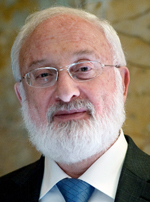
PETACH TIKVAH, Israel — Should we cancel people and their ideas if we do not agree with them? This has become the dilemma of our era. The so-called “cancel culture” which consists in removing support for public figures for their opinions or actions is already a trend invading the Internet. At times when the lives of all revolve around the same struggles and challenges, what we need to cancel are our divisions. Instead, we need to embrace our differences and create an environment of acceptance. Our common destiny is at stake.
Public backlash against celebrities, scholars, scientists, public persons or companies for something they expressed that might be considered offensive—this is the new norm on social media. No one is exempted from such calls to end their careers or to receive other punishments, even to the point of total boycott if their views don’t please certain sectors. Where does the freedom of expression end and freedom to cancel others begin?
We live in a time when our ego—our self-centered vision—breaks every boundary, lacks any restraint or control. The ego does not want to hear others out or consider differing views. It is unwilling to discuss facts or controversial issues in a civilized way. In other words, we have no interest in forming a common idea, meeting halfway (or even a fraction of it) to find common ground. The ego does not give up easily, because what matters to us is our own point of view. This is the only truth.
The abolition of the other has penetrated so deeply into modern society that there is no chance of agreement, of a civilized exchange of ideas, or of a fruitful and enriching discourse. It is very unfortunate to see how far we have drifted from the culture of discussion, how far we are from openness and how close to stubbornness. “I will reign” is the call of the hour.
The tendency to cancel others is also commonly witnessed on TV talk shows and round tables. The guests shriek out their little sound bites as fast as they can because otherwise, others will not let them be heard at all. Expressing opinions louder, sharper, faster than the other is encouraged. Logic no longer matters, and there is no longer any interest in the content of things.
Cancel culture promoters see it as a useful tool to preserve acceptable parameters of social justice, but how can society judge based on objective standards if its own perspective is biased and founded on a narrow-minded vision? A balanced dialogue can only be guaranteed when we learn how to communicate and listen to one another—not through intimidation but through receptiveness.
This does not mean that there is a need to undo anything, nor to give up any opinion. All that we need is to learn how to arrange the arguments and confrontations so that they are delivered without grating on nerves. In whatever topic of interest, we need to hold a conversation directed to the benefit of the public and the world instead of a fight. If we speak from the intention to help, we will not bring each other down, but we will look together for the right path. We need to discover within every meeting a path to move forward to a better and more considerate world for all.
Please don’t mistake this for adopting an artificial politeness, because pleasant manners today are no match for the rising egos of tomorrow. The new mode of communication should be based on building our inner abilities to connect with others. This means changing our intention and our way of thinking: for the benefit and progress of others rather than to belittle and exploit them.
Human society continues to deteriorate and we need to understand that our salvation from this situation can only come through learning how to treat each other properly.
In the end, the only behavior we need to cancel is our mutual cancellation; this is all that separates us. When we reach such awareness and exert to come to mutual understanding, our society will be a much more pleasant place to live.
*
Michael Laitman, Ph.D., studied philosophy and Kabbalah at the Russian Academy of Sciences in Moscow, and now resides in Petach Tikvah, Israel. He has published more than 40 books on a variety of topics.
It seems that this article can be metaphored into
“Can’t we. all just get along .”
What needs to be discussed is that people only listen to those that hold the same pre-held opinion as themselves. It’s very difficult to hear voice/s that “you know are wrong.” Two specific subjects; religion and
Politics.
Ira Spector